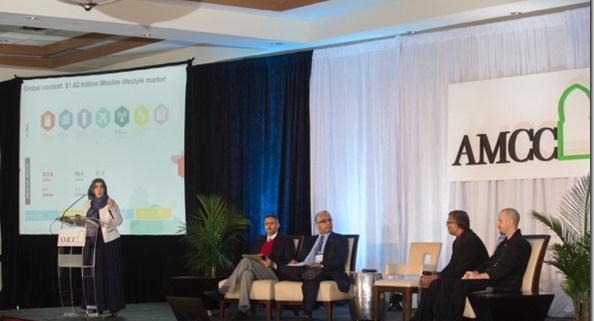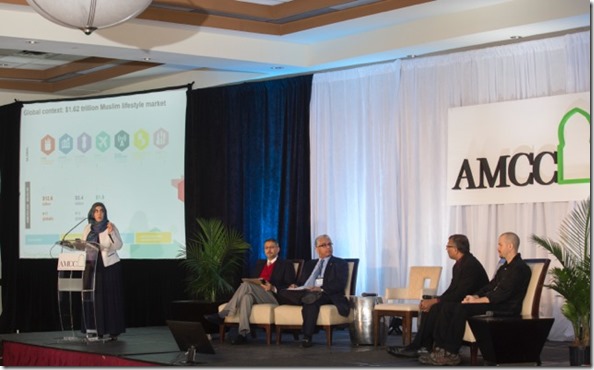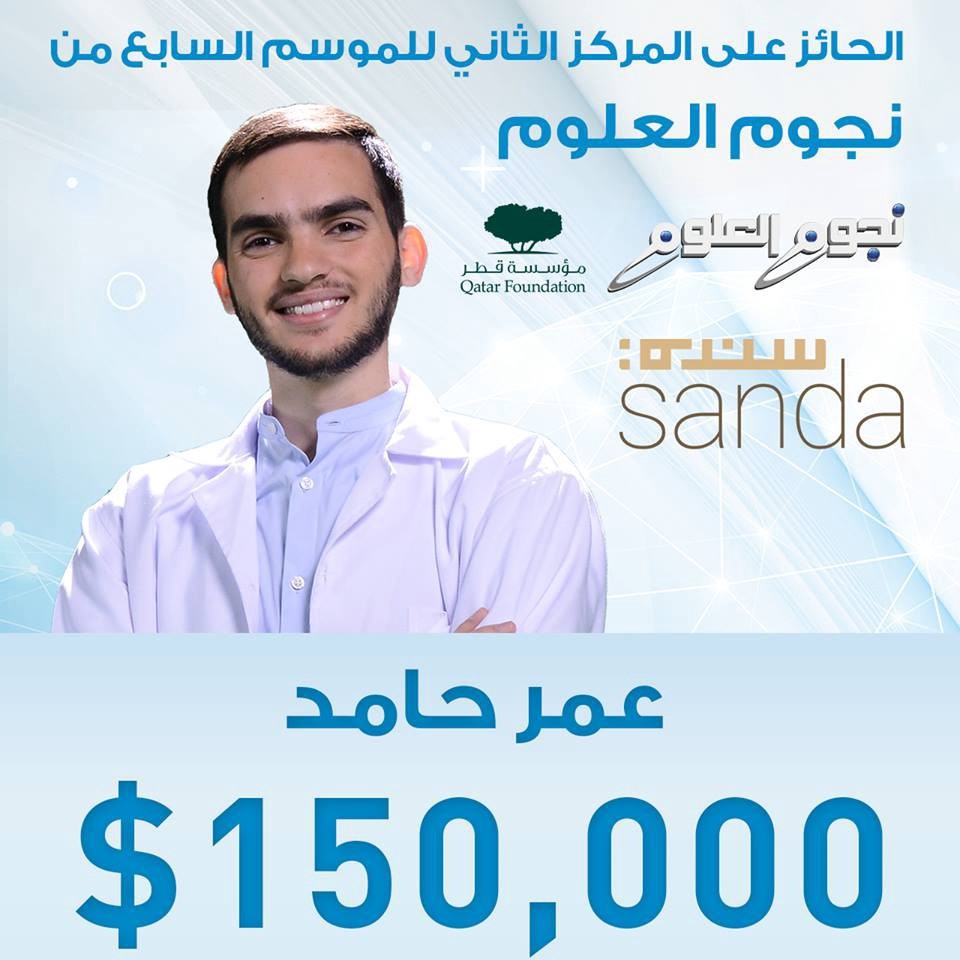Muslim Buying Power
From left to right, Iman Kouvalis, Senior Associate at DinarStandard, Hatem Bazian, Co-Founder & Academic Affairs Chair at Zaytuna College, Adnan Durrani, CEO of American Halal Co., Shahed Amanullah, Co-Founder and CEO of LaunchPosse, and Errol Schweizer, Executive Global Grocery Coordinator at Whole Foods. Photo Credit: Fatima Iqbal Photography.
New Consumer Survey Highlights Muslim American Spending Power, Increased Demand for Ethical Islamic Goods
By Mahvish Irfan
Contributing Writer, TMO
The American Muslim Consumer Consortium (AMCC) held its fifth annual conference last weekend in Newark, NJ. Founded by Faisal Masood, this non-profit corporation aims to address the needs of American Muslim Consumers and empower companies developing products for this market. The sold-out conference featured 25 game-changing speakers, a bustling crowd of over 400 professionals, and a $10,000 prize awarded to the most promising entrepreneur, LaunchGood. The Halal Guys were also honored with the 2014 Multicultural Award.
The theme of the event, “Muslim Market: Global Perspectives,” created a perfect segue for the debut of the 2014 American Muslim Consumer Market Study. Produced by DinarStandard in partnership with AMCC, the study surveyed 973 American Muslims from every major ethnic and geographic segment in the U.S., paying special attention to their spending and consumption habits.
Iman Kouvalis, Senior Associate at DinarStandard, presented the findings, giving special attention to the major categories in the halal market including food, finance and education. From these categories as well as others, three facts were indisputably clear: the American Muslim demographic is growing fast; they are increasingly evolving into educated conscious consumers; and there is major profit opportunity for businesses ready to meet their demands.
The study reveals that the Islamic lifestyle economy is thriving, representing $2 trillion in consumption globally. In the United States, DinarStandard conservatively estimates that while the population of American Muslims is over five million, they garner $98 billion in disposable income.
In the halal food sector, the statistics are especially astonishing. Nationally, American Muslims’ estimated food and beverage consumption expenditure is $13 billion. Globally, the Muslim market is a staggering $1,008 billion, exceeding the total U.S. food and beverage market by $272 billion.
More impressively, industry leaders like Adnan Durrani, CEO and Founder of American Halal Co, Inc., are elevating the meaning of halal consumerism so that it evolves with the market’s shift towards “conscious consumerism.” In other words, American Muslims are no longer purchasing halal products just because they are labeled halal. Instead, they are searching for value, quality and proper Islamic practice.
According to DinarStandard’s consumer study, 93% of respondents stated that they purchase halal food products for their homes; of those, 66% prefer strictly zabihah halal, a category that has grown by 11% since 2011. This clearly indicates that the demand for Islamically-based ethical products is burgeoning. “I think it’s wonderful that DinarStandard has put out a study like this because there is a huge lack of research around the Muslim demographic, especially in the United States,” Durrani told the Muslim Observer. “This is a good take on this kind of research,” he said.
Durrani is not, however, surprised by the statistics. “They are what our business model was based on many years ago,” he said. His company, Saffron Road, has worked diligently to meet the rising demands of conscious consumers by selling all-natural, humanely raised, gluten-free certified, non-GMO verified, antibiotic-free halal cuisines. As a result, sales have skyrocketed.
Saffron Road products are sold in over 10,000 retail food stores across the U.S. and have received numerous awards for their quality and standards. The company received the “Best Halal Company in the World” award at the 2013 Global Islamic Economy Summit in Dubai.
Yet, despite the enormous success of these companies, American Muslims are still hungry for more. As evident from the study, 86% of respondents are eager to see more ethical halal products available for purchase at their local supermarkets. No doubt, this demand opens the floodgates of opportunity for national retailers. “Consumers are willing to pay a premium to see their values reflected,” Shahed Amanullah, Founder of Zabihah.com, underscored.
In the finance and education sectors, there are also strong correlations. The American Muslim financial market is growing and there is ample opportunity for businesses if they serve this overlooked demographic. This is brought to light by the fact that 65% of American Muslims want Islamic finance products available at their local banks and 54% want ethical financing. Another 80% express that they seek interest-free college loans in order to remain sharia-compliant.
The value and price that American Muslims place on education is one of the major factors that separate them from any other demographic. Dr. Hatem Bazian, Co-Founder and Academic Affairs Chair at Zaytuna College, noted that “30% of the Muslim community have a B.A., 25% have been in graduate school, and 5% have a PhD,” figures that are much higher than the national standard.
Rafi-uddin Shikoh, Founder and CEO of DinarStandard also indicated that American Muslims spend more on education than the national average. “In terms of the national average in the U.S. of household expenditure, education is ranked #9 as a spending category,” he told the Muslim Observer. “With the American Muslim household, it ranked #3 and #4 in our 2011 and 2014 surveys.”
With so much being spent on higher education and all categories of the U.S. halal market in general, this gives rise to the question of whether or not American Muslims’ needs are being met. According to the statistics, the simple answer is “no.” But, as the 2014 American Muslim Consumer Market Study and AMCC speakers demonstrated, there is unprecedented opportunity in targeting this largely disregarded, but unquestionably worthwhile demographic. This fast-growing group is one of the most educated, ethically-conscious groups of consumers in the marketplace – one that deeply values their Islamic and American identities. They are eager to see quality halal products in the marketplace that reflect their values and help them feel more integrated into American society. And, perhaps best yet, they are very willing to financially support businesses that meet their demands and openly value them as consumers.
Mahvish Irfan is a writer and recent graduate of Rutgers University, where she studied Religion, English and Professional Writing. Follow her on Twitter @MahvishMI
16-48















2014
2,398 views
views
1
comments